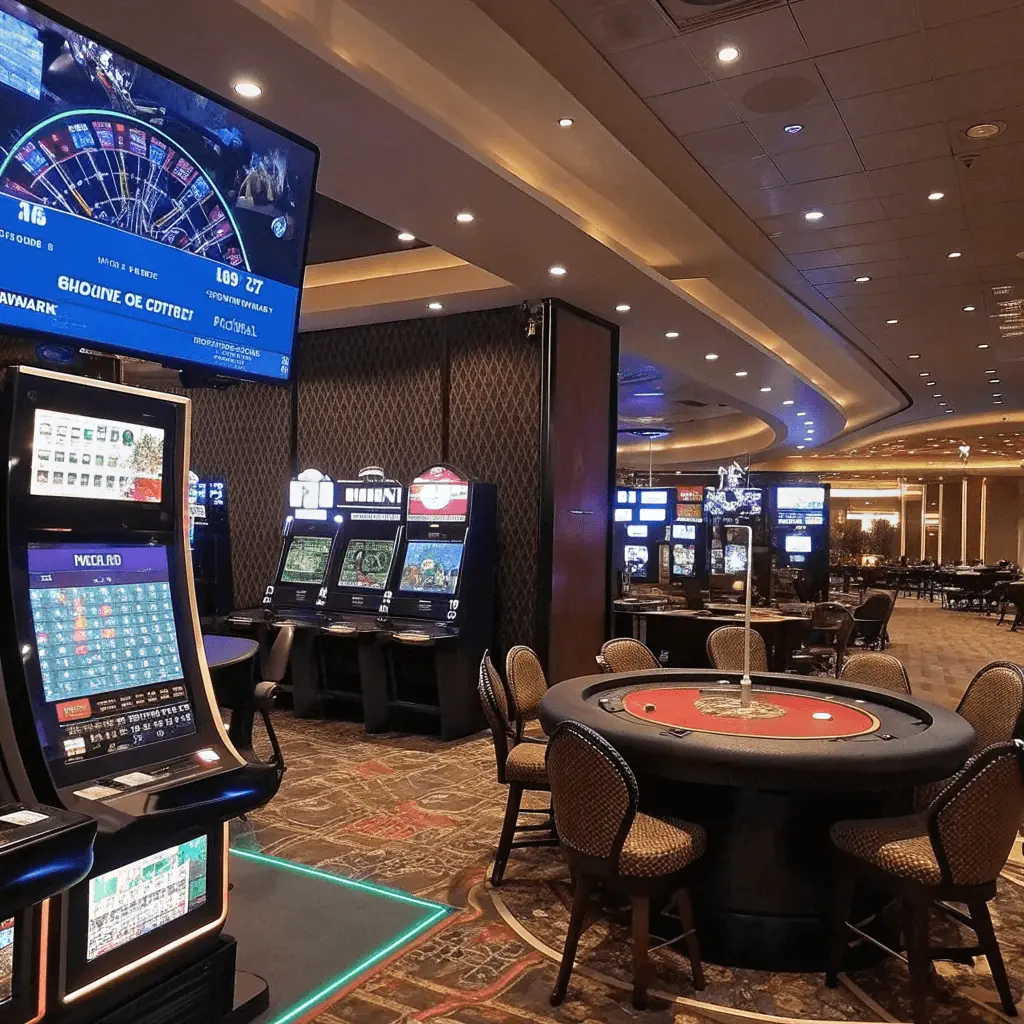Online casinos have undergone a remarkable transformation since their inception in the late 1990s. What began as simple digital versions of traditional casino games has evolved into comprehensive entertainment ecosystems. By 2025, the global online gambling market has reached an estimated value of $112.3 billion, representing a 10.6% compound annual growth rate since 2020. This explosive growth isn’t just about gambling anymore, it reflects a fundamental shift in how these platforms position themselves in the digital entertainment landscape.
Data Behind the Transformation
Recent statistics highlight the dramatic shift in how users engage with online casino platforms like BetCity Casino in Nederland:
- The average user session duration increased from 22 minutes in 2020 to 37 minutes in 2025
- Non-gambling activities now account for 28% of time spent on leading casino platforms
- 64% of users report visiting online casinos primarily for entertainment rather than potential winnings
- Social interaction features show 89% higher engagement rates than traditional solo gameplay
Furthermore, demographic data reveals that 42% of online casino visitors in 2025 fall into the 25-34 age bracket—a generation that prioritizes experiences over possessions and seeks entertainment that offers social connection opportunities. This explains why platforms investing in community features are seeing 2.7 times higher retention rates compared to those focused exclusively on gambling.
Entertainment Features Driving Growth
One of the most significant developments in the online casino space is the integration of live entertainment. Leading platforms now host virtual concerts, celebrity appearances, and exclusive events. In 2025, major platforms allocated an average of 18% of their operating budgets to entertainment programming—up from just 3% in 2021.
For example, TopBetCasino partnered with Grammy-winning artists to host 37 exclusive virtual concerts in the first quarter of 2025, attracting 2.8 million unique viewers. These events resulted in a 34% increase in new account creations compared to the previous quarter. This demonstrates how entertainment offerings serve as powerful acquisition tools beyond traditional marketing approaches.
Interactive Game Shows and Reality Content
The line between traditional game shows and casino games has blurred considerably. Many platforms now feature professionally produced game show formats with live hosts, audience participation, and production values that rival broadcast television.
These interactive shows blend gambling elements with entertainment, creating experiences that appeal to broader audiences. Data shows that 52% of participants in these formats place smaller average bets but engage for 41% longer sessions compared to traditional casino game users.
Social Casino Experience
Community Building Features
Modern online casinos increasingly function as social networks with gambling elements. These platforms feature:
- Personalized avatars and virtual environments
- Group chat and voice communication tools
- Team-based challenges and tournaments
- Friend lists and social sharing capabilities
In fact, platforms with robust social features report user acquisition costs 31% lower than industry averages, highlighting how word-of-mouth and social connections drive growth more efficiently than traditional marketing.
Comparison of Entertainment Features Across Major Platforms
| Platform | Live Events (Monthly) | Original Content Hours | Social Features | Average Session Duration | Non-Gambling Revenue % |
| Vegas World | 42 | 86 | High | 58 minutes | 32% |
| Lucky Stream | 37 | 64 | Medium | 43 minutes | 27% |
| Royal Players | 28 | 112 | Very High | 67 minutes | 38% |
| Golden Gateway | 18 | 42 | Low | 26 minutes | 14% |
| Spin Universe | 53 | 93 | High | 51 minutes | 35% |
Regulatory Adaptation and Responsible Entertainment
The entertainment pivot also serves strategic regulatory purposes. With gambling regulations tightening in many markets, diversifying into entertainment helps platforms remain viable even under stricter gambling controls. By 2025, 73% of major online casino operators had established separate entertainment divisions operating under different regulatory frameworks.
Moreover, the entertainment approach aligns with responsible gambling initiatives. Platforms report that users engaging with non-gambling entertainment features display 28% less problematic gambling behavior compared to traditional users. This creates a win-win scenario where platforms can grow while potentially reducing addiction-related harms.
Technology Enabling the Transformation
Technological advancements have made this evolution possible. Key technologies include:
- High-definition streaming capabilities allowing for TV-quality live content
- Advanced social networking infrastructure supporting real-time interaction
- Artificial intelligence systems personalizing entertainment recommendations
- Virtual reality integration creating immersive entertainment experiences
In practical terms, these technologies have reduced latency in live streaming to under 1.2 seconds (compared to 4.7 seconds in 2020) and enabled simultaneous participation of over 50,000 users in single live events.
Future Outlook and Industry Projections
Industry analysts project that by 2027, the distinction between online casinos and entertainment platforms will further blur, with gambling representing less than 60% of total revenue for major operators. The trend toward entertainment-first platforms is expected to accelerate, with projected investment in original content reaching $3.7 billion industry-wide by 2028.
As this transformation continues, we can expect to see more partnerships between traditional entertainment companies and online casino operators, creating new hybrid business models that leverage the strengths of both industries.
Online casinos’ evolution into entertainment hubs represents not just a business pivot but a fundamental reimagining of digital leisure spaces. By creating environments where gambling is just one of many entertainment options, these platforms are securing their relevance for the next generation of digital consumers.
